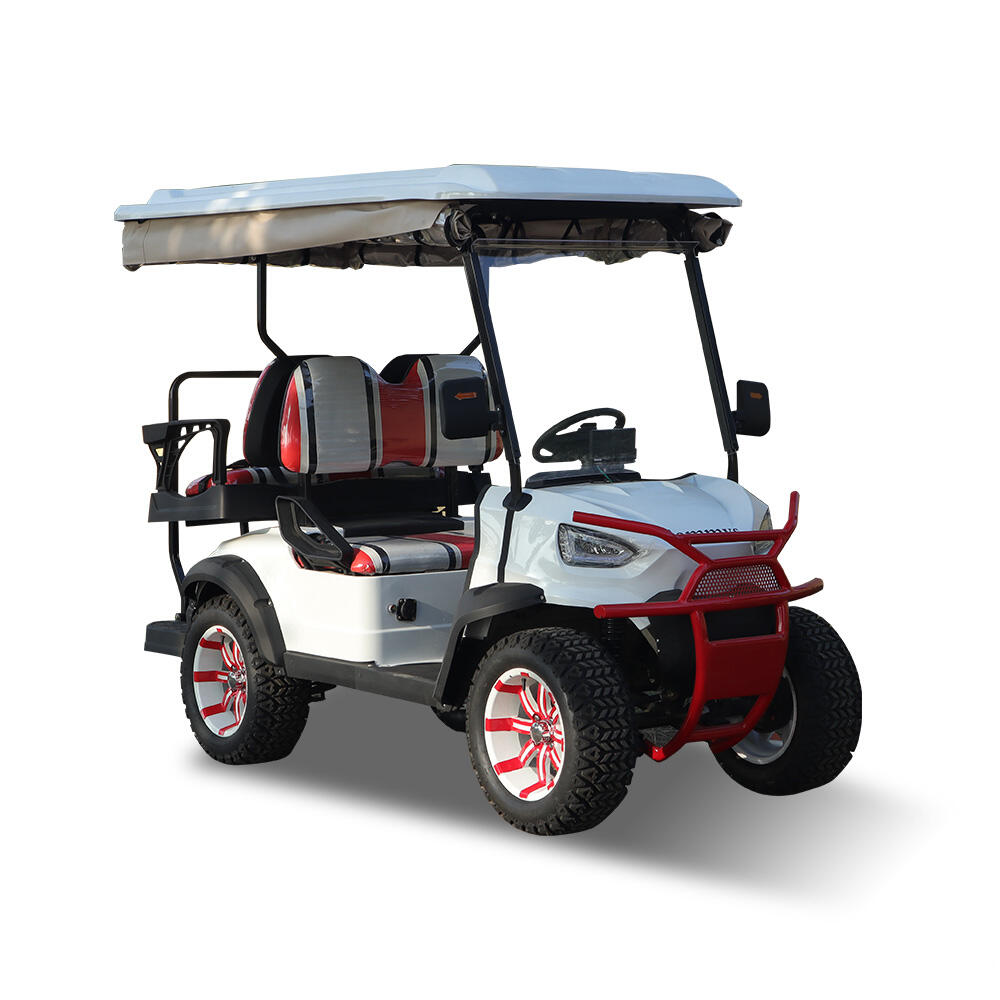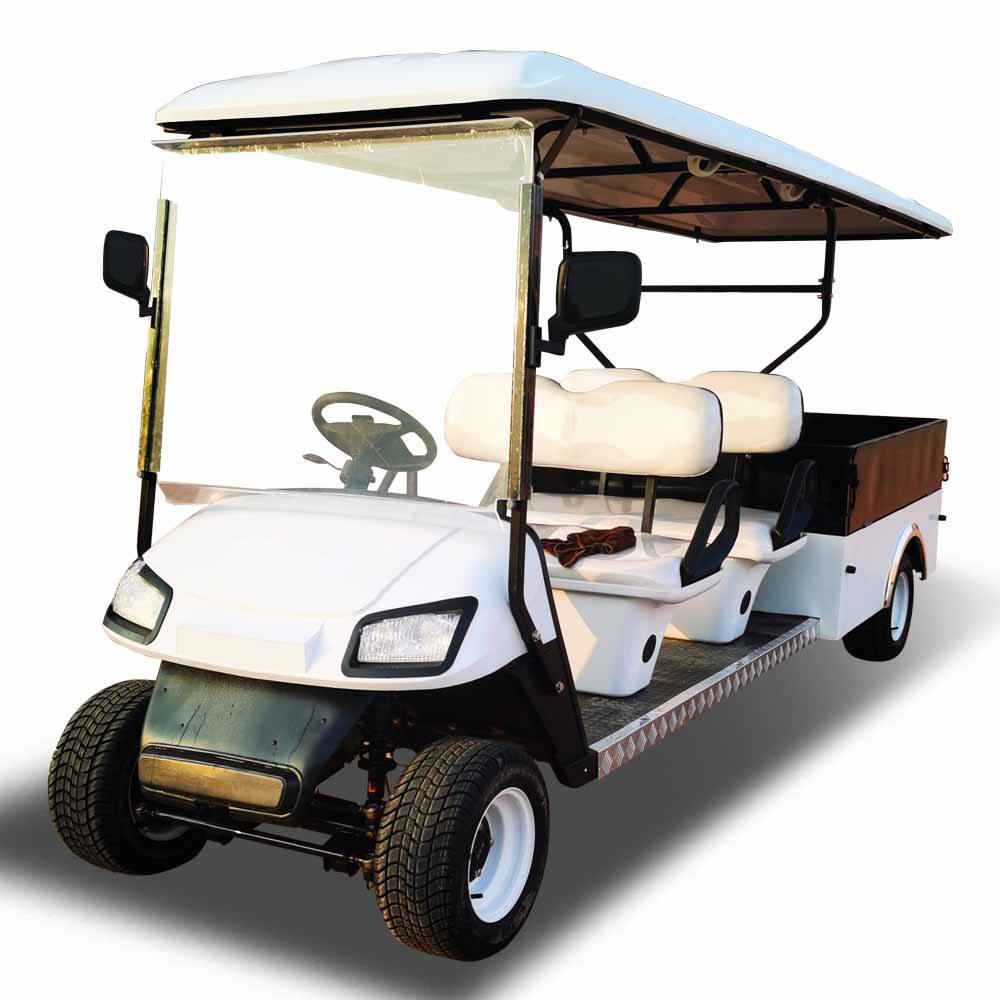Intellegere Effectum Fabricationis de Qualitate in Golf Cart Exsecutio
Industria carruculorum golf evoluta est multum per annos, cum club car fabricatores praecipuum munus agunt in formando futuro tam transportationis recreativae quam professionalis pro golf. Quando fit quaestio de investitione in grex carruculorum golf vel unico vehiculo ad usum privatum, electio fabricatoris omnem differentiam facere potest in actu, fiducia, et pretio longo tempore.
Fabricatores hodierni carruculorum clubi coniungunt ingenium novativum cum processibus fabricationis provectis ad creanda vecta quae exspectationes superant. Hi duces in industria intellegunt suos productos non modo esse vecta – sed instrumenta necessaria quae conferunt experientiae generali luderis golf et efficacitati operationum camporum golf per totum mundum.
Praestantia Fabricationis Quae Est Fundamentum Optimum Carruculorum Clubi
Ingenium Provectum et Principia Designandi
Fabricatores principes carrucarum clubi standarda ingeniaria rigida in toto processo productionis implementant. A conceptu initio ad ultimam compositionem, omnis pars scrupulosa examinatione subicitur ut optima performantia certificetur. Usus systematum desinendi auxilio computatoris (CAD) et machinarum fabricandarum praecisionis constantiam et qualitatem in omni vehiculo productum garantit.
Integritas structuralis uniuscuiusque vehiculi a designo frame exorditur, ubi materiales altae quaestae eliguntur ad perfectum pondus et vim aequilibrium praebebendum. Ingegniores periti systemata suspensionis, mechanismos regendi et catenas motrices sine intermissione optimizant, operationem tectam per varias terras certificantes.
Qualitas Controlis et Protocola Experientiarum
Fabricantes premium carruciarum club manent exactas rationes contrarietatis qualitatis per totum cybum productionis. Unumquodque vehiculum plures inspectionum stationes transigit, a testatione componentium usque ad verificationem ultimam aggregationis. Haec completa pignora certitudinis qualitatis adiuvant recognoscere et curare potestialia negotia antequam ad ultimum usorem perveniant.
Testatio exercitationis includit diligenter examinanda accelerationem, restinguendum, stabilitatem, et efficientiam bateriae pro modellis electricis. Testatio environmentalis certificat vehicula variis conditionibus tempestatum ferre posse et praestare in optimo statu, sive qualescumque sint difficultates climatis.

Integratio et Innovatio Technologicae
Peculiaritates Sapiens et Systemata Coniuncta
Fabricantes nōvārum carrucārum clubīs sunt in praecipiendō technologicāe intrōductiōnis, inclūdendō sapientia quae ūsum et mānitentiōnem ambō meliōrat. Nunc tractiō GPS, systemata gestiōnis fūnnis, et instrumenta diagnostica sunt offerenda commūnia ā prīncipibus fabricantibus, dantibus operātōribus campōrum golficōrum contrōlum antehac incognitum et cūram fūnnis suārum carrucārum.
Systemata cōnecta permittunt monitorium rēctō tempore dē ōperātiōne carrucārum, statū bāttāriae, et necessitātibus mānitentiōnis. Hoc modus prōvidēns ad gestiōnem carrucārum adiuvat praestō ā temporis intermissiōne nōn expectātā prohibendō et vālitūdinem per aetātem ūnīusquīque carrucārum ōptimizandam.
Vestibulum elit suscipit
Cōnsiderātiō environmentalis facta est lapis angularis clārōrum fabricantium carrucārum clubīs. Prīncipēs in artibus implementant prōcēssūs prōductiōnis amicōs ambientī et cōnfectōrēs vehiculōrum efficentioris energiae. Fōcus in sustinendō porrigitur ā plateā manufactōriā ad prōductum fīnālem, cum magis ponderātiōne in materiīs recyclābilibus et imminūtīs vestigiīs carbonis.
Tecnologia vehiculōrum electricōrum continue progreditur, cum fabricantes in meliora systemata batteriarum et solutiones recarcandi investant. Haec progressio non solum ambiente proficit, sed etiam magnas conservationis impensarum reductiones praebet operatoribus camporum golficorum.
Emolumenta Diuturna Electi Socii
Supportio et Rete Servitiorum Completa
Rationem cum fabricante fidigno carrorum clubbalium constituere longe ultra primitivam emptionem porrigitur. Fabricantes primarii amplitos nexūs ministeriales servant, technicos certificatos et partes substitutionis veras celeriter offerentes. Haec subsidii structura disruptionem minimam operationibus praebet, cum conservatio vel emendatio necessaria sit.
Programmata doctrinae et documenta technica a fabricantibus praebita iuvant teams conservatorias peritiam capessendam, ut vehicula ad summam efficientiam operentur. Haec traditio scientiae pro longissima aetate cursus tuī maxime utilis est.
Redintegratio Investitionis et Summa Impensarum Dominationis
Quamquam pretium emptionis primi interest, fabricatores periti club car demonstrant quomodo vectes qualitatis praebent meliorem reditum super investitionem per minores sumptus in conservatione, maiorem aetatem usus et altiorem redemptionis valorem. Durabilitas et fides vehiculorum bene confectorum directe convertuntur in infiriorem totalem proprietatis sumptum tempore.
Fabricatores praeclarī etiam stipulationes praestationis ratae et solutiones dotales saepe offerunt, quibus facilius est in instrumenta qualitatis investere dum fluxus nummorum aeque administratur.
Tendentiones Futurae in Fabricatione Club Car
## Technologiae Emergentes et Innovationes
Futurum fabricationis club car formatur ab artificiis emergentibus et mutationibus postulationis mercati. Fabricatores capacitates autonomas, auxilias tutela meliores et solutiones meliores in servando energia explorant. Haec innovatio pollicetur se revolutionem adferre modo quo campi golfici grex suos administrant et clientes suos iuvant.
Artificialis intelligentia et machinale discendi integratione facultates praedictivae conservationis efficiuntur, quae operativis futura impedimenta ante ipsa in operationem irruant providere et vitare iuvant.
Optiones Conformationis et Personalizationis
Primi fabricantes carrucum cluborum eorum possibilitates ad mensionem accommodandi augent ut variatas clientium necessitates implerent. Ab accessionibus specialibus usque ad optiones branding personalizatas, fabricantes plures vias offerunt curriculis golficis ut experientias unicas pro suis luderibus creent, dum tamen optimam vehiculorum perfomantiam servant.
Possibilitas vehiculorum ad specificas applicationes accommodandorum, dum integra manet operis et subsidii obligatio a fabricante, in industria golfica concurrente magis magisque importans fit.
Saepe Interrogata Quaestiones
Quid quaerendum est mihi cum fabricantem carruci clubi eligo?
Cum fabricantem vehiculorum club eligis, considera qualitatis rationem, rete subsidii disponibile, tuitio praestata et facultates technicas. Fabricantes quaere qui firmam stabilitatem pecuniariam habeant et ad developmentum productorum et subsidium continuandum se committant.
Quam saepe vehicula club debent periculo a fabricante recommendato inspici?
Programmata servitiae variant secundum fabricantem et usus schemata, sed plerumque inspectiones regulares post 100–150 horas operationis includunt. Fabricans fidus praecepta servitiae diligenter tradet et auxilium praebet ut optima functio servetur.
Quae sunt praerogativae vehiculorum electricorum club praepositis modellis a gaso motis?
Vehicula electrica proculdubio minores sumptus habent, minus requirunt mendantium et nullas emittunt emissiones. Principes fabricantes vehiculorum club continue technologiam batteriarum et systemata recensendi meliorant, facientes ut vehicula electrica optionem cotidie magis appetendam sint pro multis locis.
Quomodo possum usum dorso vehiculorum meorum longissimum efficere?
Ut maximam durationem gregis efficias, sequere tempus refectionis a fabricante praescriptum, utere partibus veris, certifica rectam operatorum institutionem et tene notas curarum diligenter. Cotidiana communicatio cum retia ministerii fabricantis tui adiuvare potest ut cito dubia identifices et tractes.




